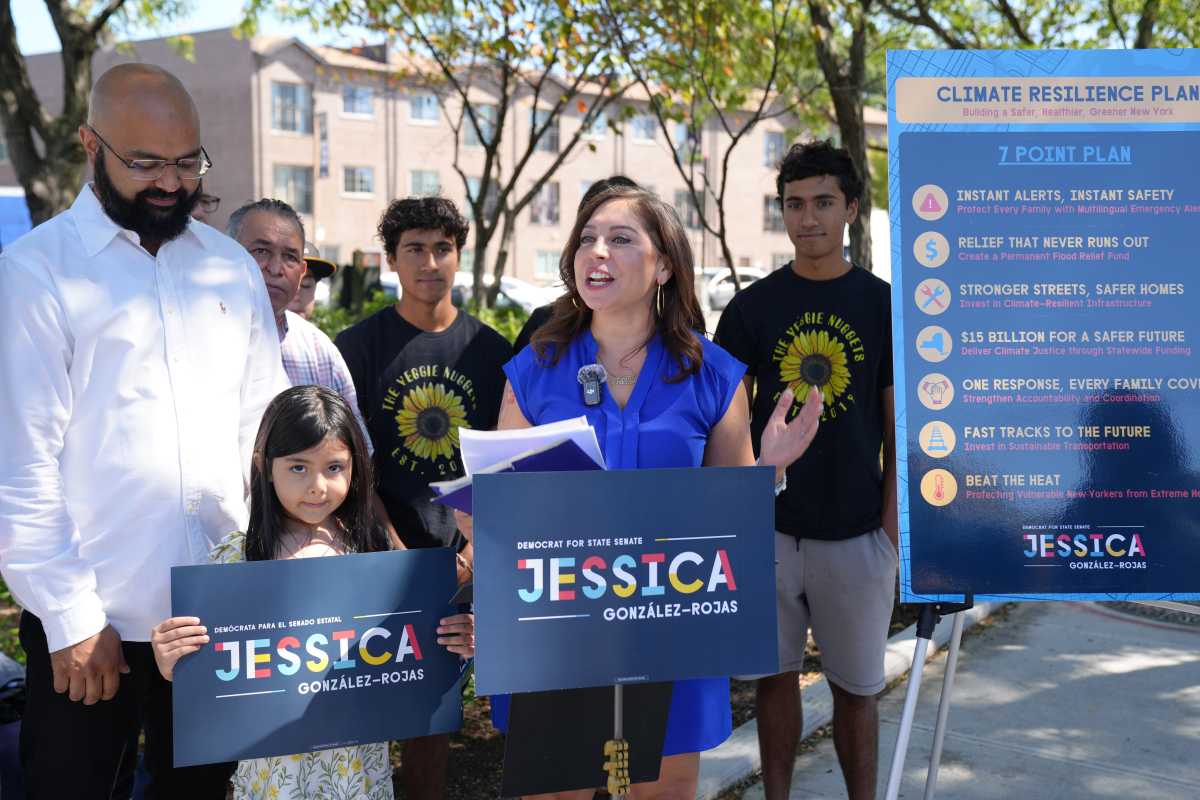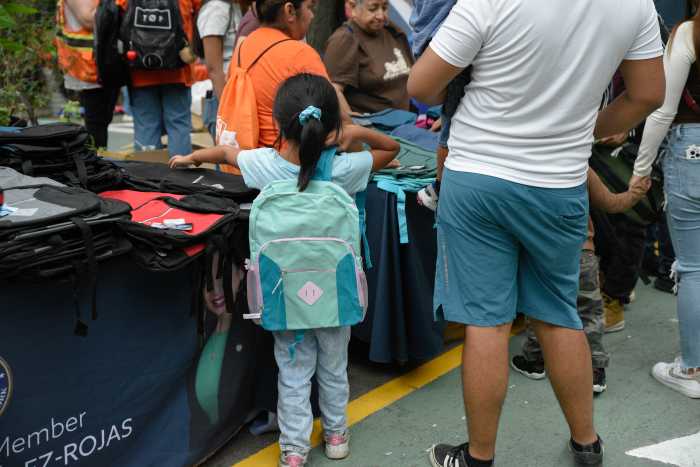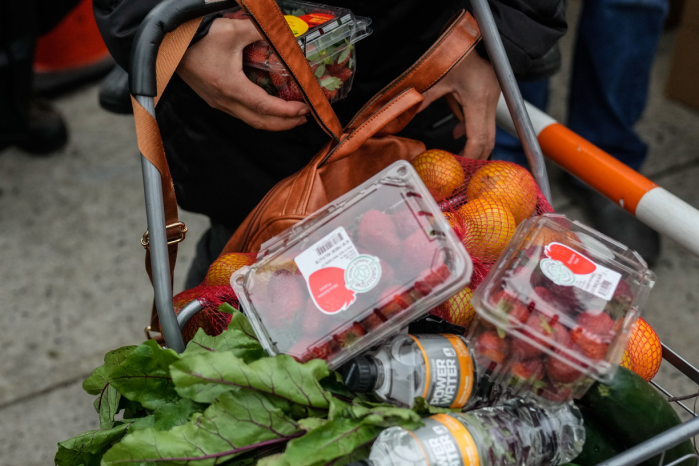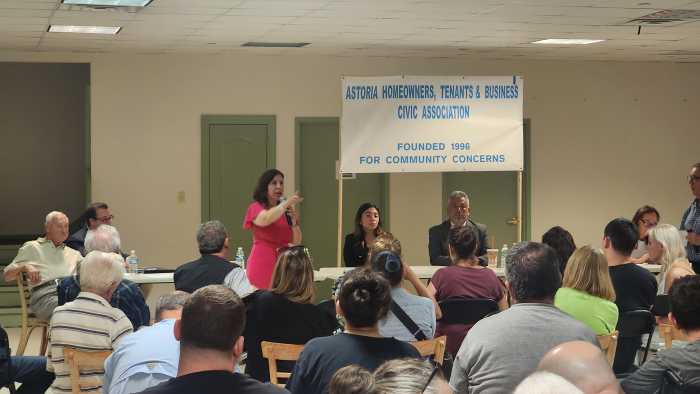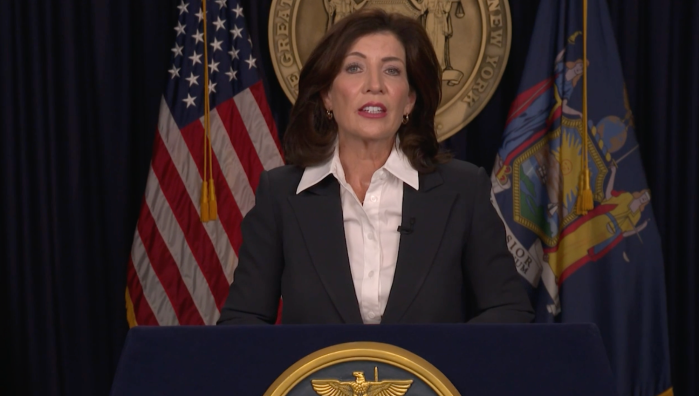Four years ago, Hurricane Ida tore through our neighborhoods of East Elmhurst, Corona and Jackson Heights, leaving behind devastation we will never forget. We lost neighbors to the floodwaters. Families saw their homes destroyed, their basements wiped out, their lives upended. Immigrant families—so many of them undocumented—were hit the hardest, often excluded from relief altogether. Ida was not just a storm; it was a wake-up call.
But today, four years later, too many families in Queens are still living with the same fear: that the next storm will bring the same destruction. The danger doesn’t stop with floods. Extreme heat, a slower and less visible killer, claims more lives each year than storms or floods combined. Children, seniors, outdoor workers and low-income families bear the brunt. At the same time, our outdated transportation systems make it harder to reduce emissions and keep our neighborhoods connected and safe.
The climate crisis is here. Queens is on the frontlines. And we cannot afford more short-term fixes or broken promises. We need long-term vision and sustained action. That is why I am running for State Senate—to bring people together, from neighbors to advocates to colleagues
across all levels of government, to deliver bold, practical solutions.
I am offering a Seven-Point Climate Resilience Plan—a plan rooted in justice, collaboration and the belief that every family deserves safety, dignity and a future they can count on.
First, we must protect every family with multilingual emergency alerts. During Ida, far too many families didn’t know help was coming or didn’t understand what was happening until it was too late. In a crisis, every second counts. I will reintroduce my emergency notification bill to require agencies to deliver alerts in the top ten languages spoken in our region. Language should never be a barrier to survival.
Second, we need relief that never runs out. Families hit by floods should not have to wonder if help will come, or whether immigration status will lock them out. I will introduce legislation to establish a permanent state flood relief fund that guarantees direct aid to all homeowners impacted by flooding—regardless of status. Relief must be a promise, not a gamble.
Third, we must invest in climate-resilient infrastructure. Queens still lacks the drainage, green infrastructure and shoreline protections needed to withstand the next storm. And resilience doesn’t stop with floods. We must also retrofit our housing stock, expanding access to heat pumps and energy-efficient upgrades that cut emissions, reduce utility costs and keep families safe during both extreme cold and deadly heat waves. By working across agencies and with colleagues in Albany, I will fight to deliver this kind of 21st-century infrastructure to Queens.
Fourth, we need to deliver climate justice through statewide funding. I have called for a $15 billion statewide investment in climate resilience. That investment must prioritize resilient housing, renewable energy and good union green jobs. This is how we reduce pollution, cut emissions and create real economic opportunity. With strong coalitions across the state, we can ensure Queens gets its fair share of resources for the future.
Fifth, we must strengthen government accountability and coordination. Too many families fell through the cracks during Ida because agencies weren’t working together. I will fight for a unified emergency response plan that streamlines services, cuts red tape and ensures vulnerable communities are prioritized first. No family should ever be left waiting in the middle of a disaster.
Sixth, we need safe transit for a safer climate. Transportation is one of the biggest drivers of greenhouse gas emissions, and Queens families deserve more than traffic jams and unsafe streets. I will push to fast-track investments in reliable subways, accessible buses, bike infrastructure and safer pedestrian networks. Sustainable transportation is climate action—and it’s also about equity, giving working families better, safer ways to move around our city.
Seventh, we must protect our neighbors from extreme heat. Heat is an invisible killer, and its impact is greatest on the most vulnerable: children, seniors, outdoor workers and families without access to cooling. I will champion a statewide heat resilience strategy that expands
cooling centers, subsidizes air conditioning for low-income households and increases green space to cool down our communities. Every New Yorker deserves to be safe in their own home when temperatures soar.
These seven steps are not abstract—they are achievable, necessary and urgent. They are rooted in the advocacy I have done since Ida: securing $41 million in relief for Queens homeowners, pushing for aid extensions for immigrant families and calling for major climate
investments long before the next storm hits.
Hurricane Ida showed us the cost of inaction, but it also showed us the power of community. Neighbors helped neighbors. Organizations stepped up. Together, we secured real relief. Now we must take the next step and turn that urgency into lasting change—not just against floods, but against extreme heat and the vulnerabilities created by outdated transportation systems.
In the State Senate, I will work in partnership with my colleagues and alongside grassroots organizations to expand cooling protections, build resilient infrastructure and create safe, sustainable transportation options for Queens. Climate change is the challenge of our time, but
it is also our chance to reimagine our future—to make Queens safer, fairer and better prepared.
Four years after Ida, the lesson is clear: our families deserve safety, dignity and a future they can count on. Together, we can deliver it.

